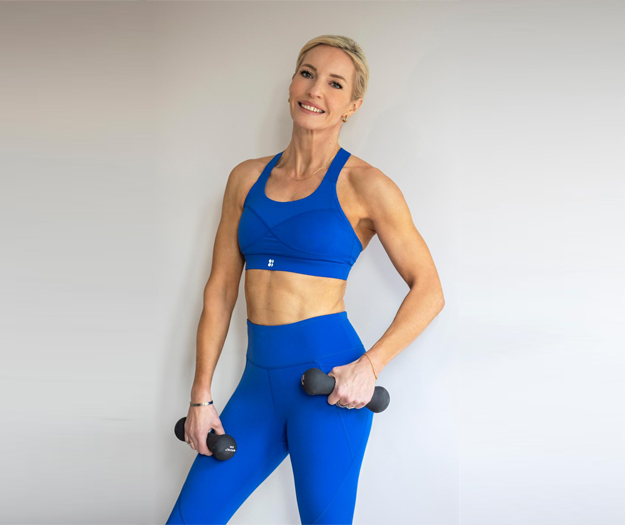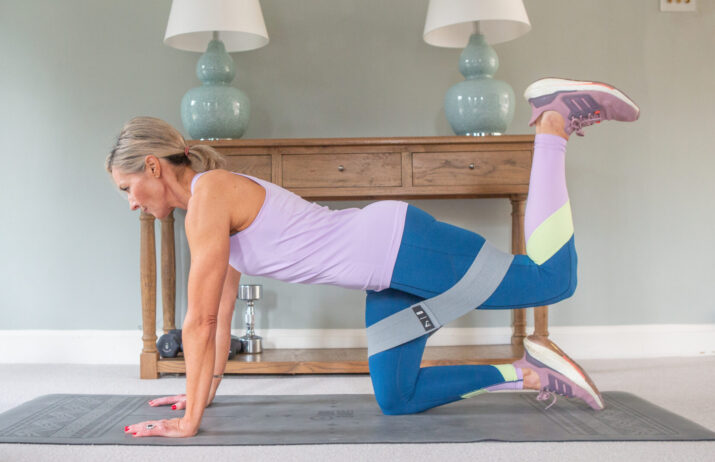Caroline's Circuits
30 minute online classes designed to improve strength and overall fitness leading to great results.

WELCOME TO CAROLINE'S CIRCUITS
Online fitness classes
4 live 30 minute strength classes at:
- 9am Monday, Wednesday and Friday
- 2pm Tuesday
- £35 per month (or converted to your local currency by your bank)
- Recordings available after the live class for you to do at a time that suits you.
WHAT DO YOU NEED TO GET STARTED?
The classes are designed for all fitness levels and to be done with minimal equipment. But there are a couple of things which will help you get off to a flying start.
A mat
2kg dumbbells - you can build up over time
A short looped resistance band for legs day
FITNESS FOR ALL LEVELS
If you're looking for the perfect way to get started this is the programme for you.


Hi Caroline, I have just finished 3 weeks of your workouts and I absolutely love them! Already I feel stronger and leaner so I must say a huge thank you and I’m so glad I found you.


FUNCTIONAL FITNESS
Mondays and Fridays are 30 minute workouts focusing on all the muscle groups. Monday is a full body sculpt class and Friday is our strength HIIT workout - you always have the option of using weights or exercising without equipment.
Tuesdays we focus on arms & abs, a great session for the upper body. Wednesdays are focussed on the lower body - 30 minutes of legs & abs. We use resistance bands if you have them but equally all the classes can be done without equipment.
FREE TRIAL
Why not try one of my free classes? Click below for a free class to land right to your inbox!

WHAT'S INCLUDED?
Inside the membership hub you will have access to live classes and on demand recordings so you can revisit your favourite classes or catch up on a class you missed.
Monday, Wednesday and Friday classes are live at 9am and Tuesday is at 2pm UK time (recordings available immediately after the class).
I have members from all over the world so you really can be part of this amazing community from anywhere!
£35 PER MONTH (inclusive of VAT)
4 live classes every week
On-demand library including abs only, 15 minute series, 10 minute series, beginners series, kettlebells and more
Download and save your favourite classes
Available worldwide
Cancel anytime

Dear Caroline, Thank you for making the classes so easy to follow and being so inspirational. I’ve seen results already, I’ve been running faster and stronger. In fact I hit my 5KB thanks to stronger core and glutes. Thank you!

A LITTLE BIT ABOUT
CAROLINE
I wanted to create a fitness platform that would appeal to everyone - to those who have exercised for years and are looking for a new challenge as well as to those who are complete beginners. My aim is to provide home workouts which will motivate and inspire you to make exercise part of your lifestyle for the future.

CLASS SCHEDULE
Monday Full Body Sculpt 9am
Tuesday Arms & Abs 2pm
Wednesday Legs & Glutes 9am
Friday Strength HIIT 9am
Hundreds of on demand classes
All times are UK time - all classes are available on the membership hub immediately after class to do at a time that suits you.









